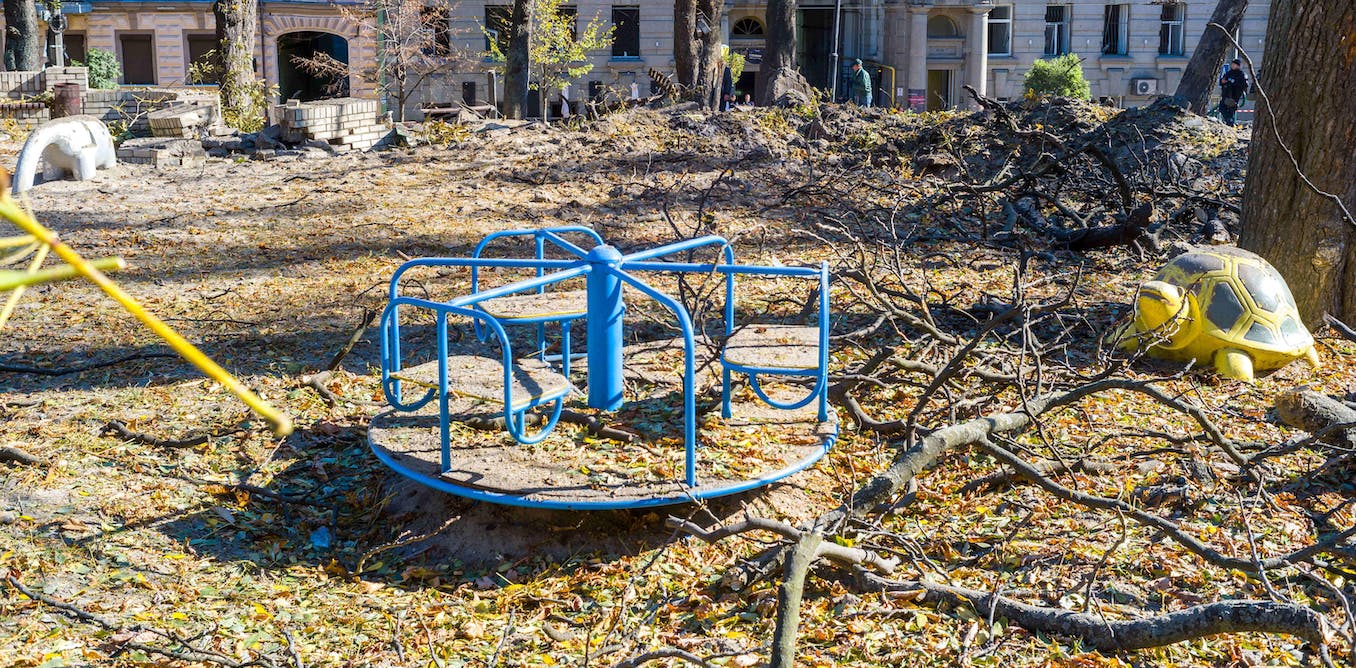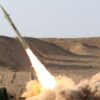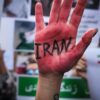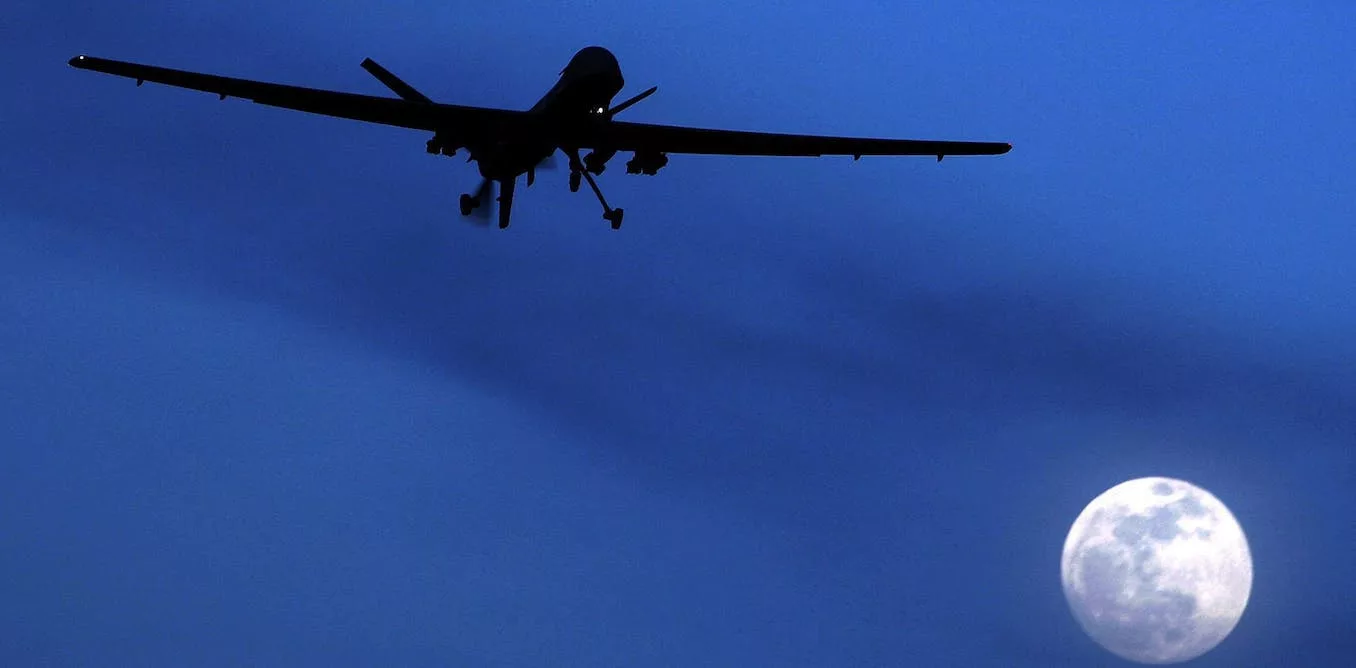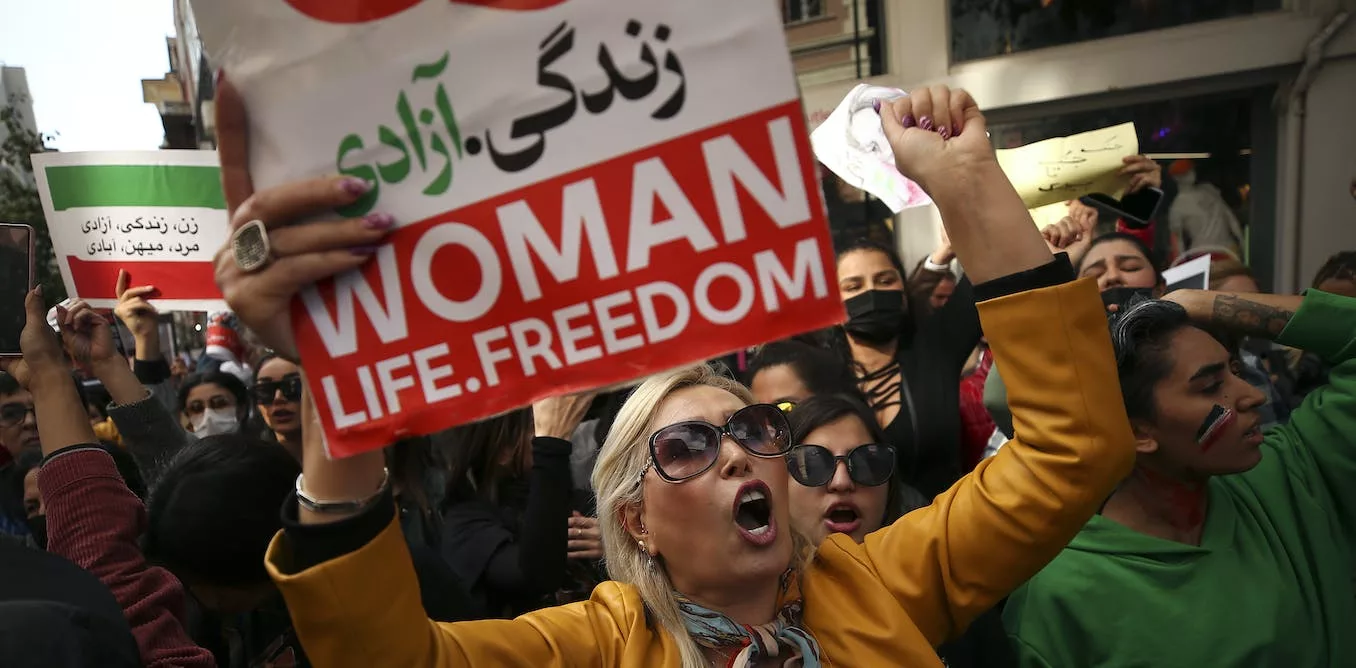Written by Jonathan Este, Associate Editor, International Affairs Editor
The latest report from the International Atomic Energy Agency, which dispatched teams to those sites to check out Shoigu’s claims, is that there is no evidence to back his assertions, prompting Ukraine’s foreign minister, Dmytro Kuleba, to tweet that the episode confirms Russia’s status as “the world’s top liar”.
But what’s undeniable is that the citizens of Kyiv and other major cities in Ukraine are facing increasing privation as a result of the relentless bombing campaigns that have targeted civilian infrastructure, especially power stations and water storage and treatment facilities. It’s a form of modern siege warfare, writes Robert Dover, professor of intelligence and national security at the University of Hull.
Dover says that Vladimir Putin is hoping that a byproduct of this strategy will be to increase the cost of reconstruction to a level that will dismay Ukraine’s western allies to the extent that it will undermine their support. And with the Republicans forecast to take control of the house in next week’s US mid-term elections, the fear is the isolationist lobby will demand cuts to President Joe Biden’s programme of military aid to Ukraine.
Read more:
Ukraine war: Putin is rewriting the rules of siege warfare this winter
This is our weekly recap of expert analysis of the Ukraine conflict.
The Conversation, a not-for-profit newsgroup, works with a wide range of academics across its global network to produce evidence-based analysis. Get these recaps in your inbox every Thursday. Subscribe here.
So far, Ukraine has proved remarkably successful in shooting down missiles and drones that have been doing much of this damage. But it was reported that Iran is preparing to send another package of 1,000 weapons to Russia, including the Fateh-110 and Zolfaghar ballistic missiles, which have a far shorter range than the “kamikaze” drones Iran has reportedly supplied Russia with already. But they are much faster, their velocity being often measured in km/second rather than km/hour. They will be more difficult to defend against, writes Daniel Salisbury, a senior research fellow at King’s College London, one of whose specialisms is modern weaponry.
Salisbury weighs up the likely consequences for the war in Ukraine. He also notes that the conflict will allow Iran to showcase its arms programme far more prominently than conflicts in Yemen and elsewhere in the Middle East, where Iranian weaponry has been also deployed with devastating consequences.
Read more:
Ukraine war: what new missiles is Iran providing to Russia and what difference will they make?
Deliberately targeting civilian populations to destroy morale is a tactic Russia has been involved in before in Syria in cities such as Aleppo and Homs, which were reduced to rubble. But in those cases the bombardment was accompanied by a ground offensive. Tim Luckhurst, a former BBC war correspondent – now the principal of South College, Durham University – researches newspaper coverage of the second world war and has written about the effect of the blitz in 1940 and 1941 on British civilian morale, which appears to have been negligible.
Read more:
Ukraine war: lessons from the Blitz suggest Russia’s targeting of cities could backfire
Making the world pay
Another of Putin’s aims in targeting civilians is to try to drive them out of Ukraine to join the 8 million people and counting who have fled to safety in other countries. It has long been thought that one of the Russian leader’s consistent war aims, in Syria and now in Ukraine, is to weaponise refugees, sending millions of people west into Europe with the aim of destabilising countries there.
And there’s at least anecdotal evidence that this has had a degree of success – immigration continues to be a red-button issue in the UK and the recent election in Sweden resulted in a coalition government whose most urgent concern is to reduce immigration. But Michael Ben-Gad, a professor of economics at City, University of London, sees this exodus – which is comprised of women and children, and large numbers of relatively young, healthy and well-educated people – could be a positive boon for their host countries, as migrants fitting this profile tend to improve productivity wherever they settle. Ben-Gad cautions, however, that Ukraine will need exactly these people when it comes time to rebuild its shattered economy.
Read more:
Ukraine war: Putin’s bid to weaponise refugees is failing – here’s what that means for Europe
One piece of good news this week is that Russia has reconsidered its threat to pull out of a grain deal after some intense diplomacy by Turkey, which helped negotiate the deal with the United Nations in July. The Kremlin announced its decision at the weekend to pull out of the dea – which has seen about 9.8 million tonnes of grain, oil and soya beans exported from Ukrainian ports in 400 shipments – following an attack on Russia’s fleet in Sevastopol harbour. Within days, and after Turkey said the shipments would continue with or without Russian acquiescence, the Kremlin announced a U-turn on that decision (although it didn’t put it quite like that).
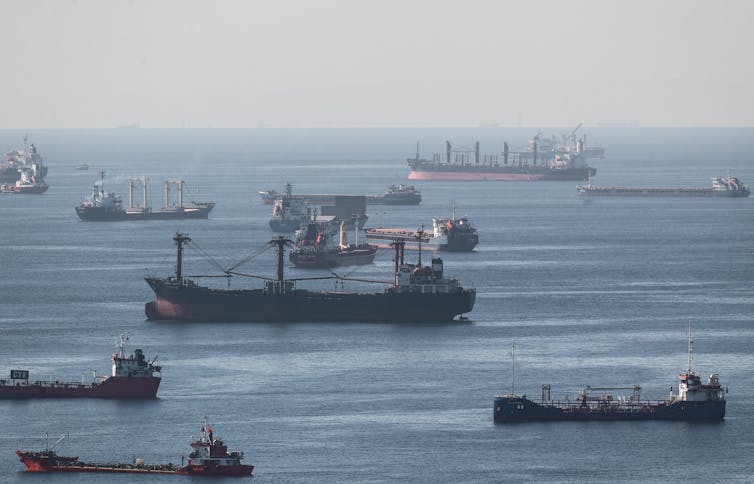
EPA-EFE/Erdem Sahin
Stefan Wolff, an expert in international security at the University of Birmingham, saw Russia’s plan to pull out of the deal as yet another “pointless and dangerous escalation” which would inflict misery on millions as food shortages force grain prices up. It is a relief, then, that grain prices – which surged after Russia announced it would quit the deal – are back on a downward trajectory.
Read more:
Ukraine war: Russia U-turns on grain deal after Putin’s attempt at escalation fails
Russia’s swift U-turn enabled Ukraine’s spin doctors to portray Putin as “a laughing stock before the whole world”. We recently discussed what might happen were Putin to be overthrown as a result of the failure of Russia’s invasion. Matthew Sussex, a fellow in the Strategic and Defence Studies Centre at Australian National University, says that there’s no evidence yet that Putin could be ousted from power – and a distinct lack of viable successors.
But here he describes three viable scenarios under which the Russian Federation could collapse as a result of defeat in Ukraine.
Read more:
Could Russia collapse?
Hearts and minds
If Putin can be said to have been humiliated by the recent U-turn over the grain deal, his opposite number in this conflict, the Ukrainian president, Volodymyr Zelensky, is riding high in international esteem. Since February, Zelensky has become known as a symbol of defiant leadership. His regular speeches – delivered in his trademark military olive green – have won hearts and minds around the world.
Jessica Genauer, who lectures in international relations at Flinders University, believes the true power of Zelensky’s speeches lies ultimately in the very ordinariness of his manner and message. His very ordinariness encourages listeners to identify with him – and through him, with fate of his country.
Ukraine Recap is available as a weekly email newsletter. Click here to get our recaps directly in your inbox.
This article is republished from The Conversation under a Creative Commons license. Read the original article.
